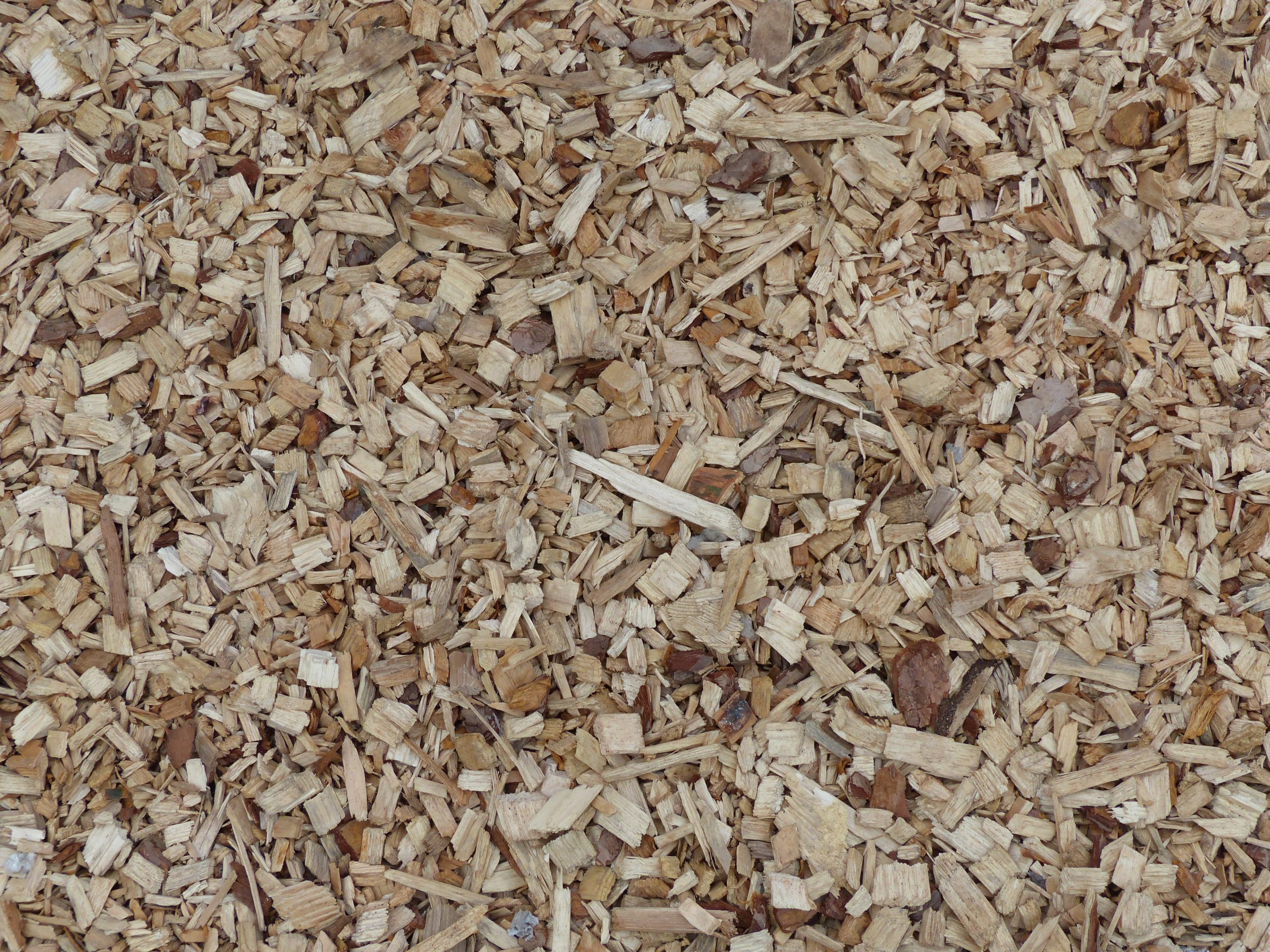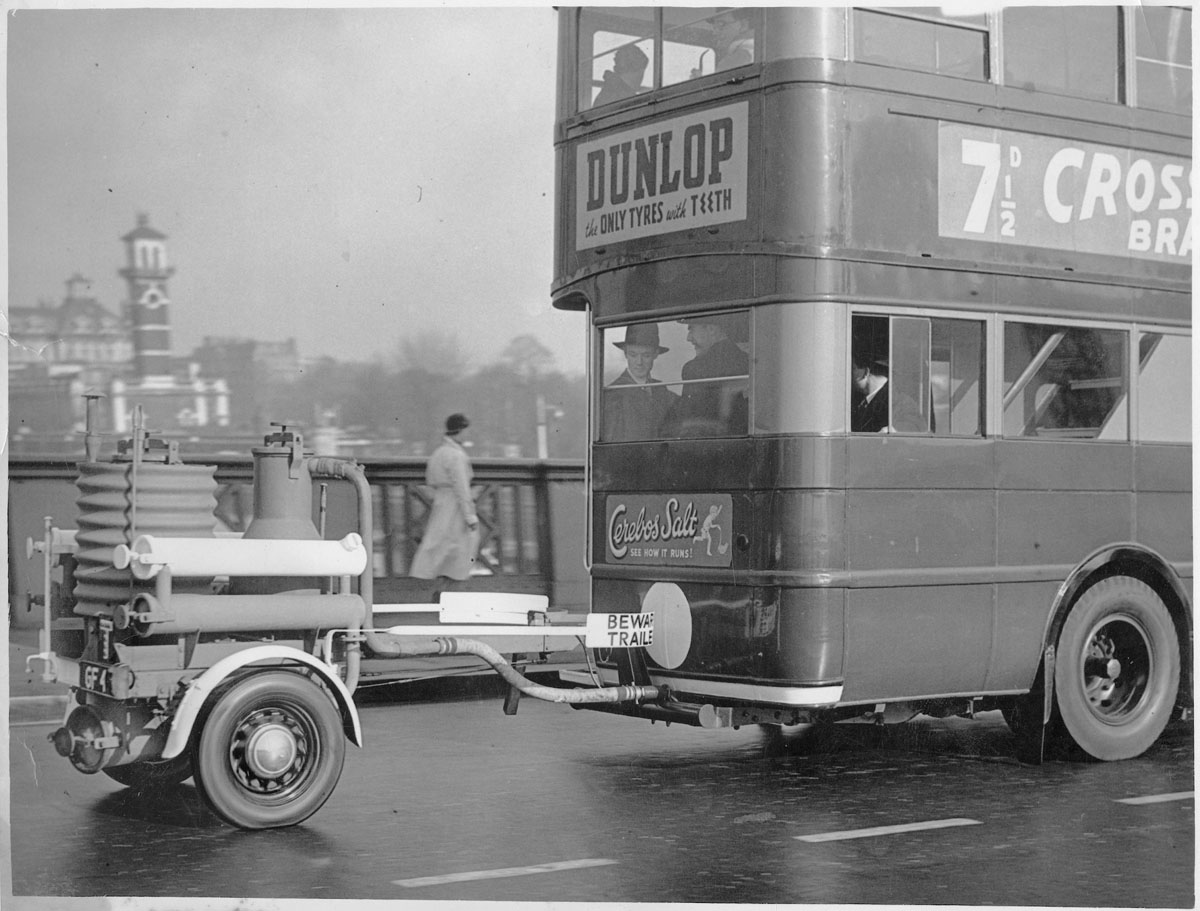A biorefinery in the Rotterdam harbour could turn wood chips into transport fuels such as hydrogen or diesel. A recent PhD study calculated that the greenhouse gas emissions involved would be half as much as fossil fuels, and potentially even less.
During WWII London buses ran on wood gas. (Photo: Wikicommons)
Remember the European 20-20-20 measure? Twenty percent less CO2 emissions in 2020 and 20 % renewable energy in the energy mix. These targets are getting more stringent by the year. The Rotterdam harbour has formulated a similar target: raising the share of sustainable energy in port and related industries from 10 to 30% by 2030. It is in this perspective that plans have been made for a bio refinery in the port of Rotterdam next to the (fossil) oil refineries. Millions of euros have been allocated for related research projects. The TU Delft was one of the 26 partners involved in the EU project BRISK (Biofuels Research Infrastructure for Sharing Knowledge) and also one of the eight partners in the Dutch research program INVENT on the pre-treatment of biomass.
 Raw wood chips (non torrefied). (Photo: pxhere)
Raw wood chips (non torrefied). (Photo: pxhere)Dr Georgios Archimidis Tsalidis worked as a PhD candidate under supervision of Professor Wiebren de Jong (Faculty 3mE) in the context of the INVENT study. Georgios Archimidis studied the influence of torrefaction on wood chips or wood pellets. Torrefaction consists of heating biomass at between 230 and 300 degrees Celsius with no oxygen present, which turns wood into a kind of low-grade coal with better properties than untreated wood. The energy and carbon density increase and the ‘roasted’ biomass is less susceptible to rot and funghi. That’s why torrefaction has been proposed as a suitable pre-treatment for wood residues as raw material for gasification.
The gasification process takes place at much higher temperatures (700 – 1200 oC) and produces a mixture of carbon monoxide (CO), hydrogen (H2), carbon dioxide (CO2), methane (CH4), water vapour, and more. Main ingredients CO and H2, together known as syngas, may be used to synthesize longer carbon hydrates such as diesel.
“For the gasification of torrified wood”, Georgios Archimidis writes, “our group has shown that coupling of torrefaction with gasification resulted in benefits regarding syngas quality and tar reduction.” The last remark is good news, since the deposition of tar is a well-known hassle for those who burn or gasify wood or straw.
Georgios Archimidis has analysed the ecological burdens and benefits over the complete lifecycle for various forms of fuel such as straw, wood and fossil oil. The best candidates are bio hydrogen (production of hydrogen by gasification of wood) and diesel from wood (synthesized from CO and H2 from wood gasification). Hydrogen from wood and wood diesel produce about 54 and 52% less greenhouse gases in comparison with fossil hydrogen and diesel, respectively.
The carbon footprint may be reduced further if the processes that require electricity (such as pelletization) utilize green electricity and the heating is performed with the feedstock itself (such as untreated wood), Georgios Archimidis remarks.
- Georgios Archimidis Tsalidis, To gasify or not to gasify torrefied wood?, 11 January 2018, PhD supervisor Prof. Wiebren de Jong, process & energy dpt. at the 3mE faculty.
Heb je een vraag of opmerking over dit artikel?
j.w.wassink@tudelft.nl


Comments are closed.